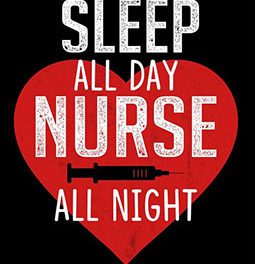By Patricia Prewitt
My Personal Rx Adviser
I’m guessing that I am a lot like the readers of this newspaper – we all hope to retire in good health and to enjoy “living the good life” that we dreamed of. Yet life has a way of throwing a few curve balls. Marriages end, a spouse is lost to a disease, disability impacts daily living, someone needs a ride to all their medical appointments, and the list goes on. Life is complicated! Managing medications for yourself, family, or friends can certainly be a challenge.
I am blessed to have beloved seniors in my life and I often accompany them to medical appointments. This has been an eye-opening experience. There are so many “ologists” (as my dad used to call them) in their lives. Just keeping track of appointments seems like a full-time job.
Here are a few practical tips I’ve learned about medication management:
1. Always bring a current list of medications, including any over-the-counter medications routinely used, to each and every visit. Why? Electronic medical records are not always updated, and more importantly, not all computer systems talk to each other. Sometimes they do not include the non-prescription medications that may have been recommended by a provider. These are important to have in the records in case of interactions with prescriptions.
2. Which doctor prescribed the medication for you (or the person you are helping)? Why? If you were referred to a specialist, like a cardiologist for a heart condition, the primary care provider (doctor, nurse practitioner, or physician assistant) respects and values the expertise of the specialist who prescribed the medication for the diagnosis. The primary care provider will be familiar with many medications, but will not make changes without consulting the specialist who started the therapy.
Tip: If the long “ologists” names are too confusing, think of the specialists by the body parts (heart, lung, eyes, bones, etc.) they treat. It is helpful to know in advance that the visit is to the heart doctor versus saying the cardiologist. When memory issues are involved, keep words as simple as possible.
3. What if I am experiencing side effects I didn’t notice before on a medication, and my next appointment is not for another four months? Call the office to report the side effects. The provider will want to know about the problem. Depending on their practice protocols, an office visit may be scheduled sooner. They might call back to say it’s OK to stop the medication. Yay! Save money by taking one fewer medication.
4.What if I am really concerned about the out-of-pocket prescription costs? Tell your doctor! Don’t be embarrassed to let your clinician know that cost is a real concern. Newer professional apps on phones help clinicians check medications for prescription plan coverage. Nearly every class of therapy offers choices that include lower cost options, although it may require taking medication more often, which could be less convenient or harder to manage.
5. What else? Although not about medication, providers like to know about any vaccines that have been given outside of the office setting. Many people received flu shots, COIVD vaccines, etc. at pharmacies or a senior center. Paper copy of vaccination records, and paper copies of office visits, can be helpful. Again, not all pertinent patient information seems to be transmitted electronically to all providers.
Content provided is for education purposes only, and is not intended as a substitute for advice from a qualified medical professional. The opinions expressed within are those of the author.
About the Author: Patricia Prewitt is a local Massachusetts resident who spent more than 30 years in the pharmaceutical industry. Tricia is a consumer education advocate, and loves helping people find ways to save money on their prescriptions. More information and free resources are available on her website at https://mypersonalrxadvisor.com/resources or call her at 508-507-8840. Favorite Quote: “Act as if what you do makes a difference. It does.” – William James



